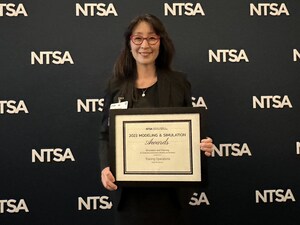NEW YORK, May 20, 2014 /PRNewswire-USNewswire/ -- HelpMeSee – a global campaign to eliminate cataract blindness – today announced its cataract elimination expansion campaign to begin throughout 23 countries in Western (Franco-phone) and Sub-Saharan Africa countries through a new partnership that introduces the use of single-use, pre-sterilized MSICS kits. The expansion campaign continues driving the reality that the backlog of cataract blindness can be eliminated within the next 20 years.
Throughout the world, untreated cataracts are the leading cause of blindness, making up 51% of all cases. Approximately 22 million people are bilaterally blind due to cataracts – with approximately 6 million living in 23 Western (Franco-phone) and Sub-Saharan African countries.
The reality that millions of people were suffering from a curable disease led two ophthalmologists from the University of Marseilles – Dr. Jean Marie Andre and Dr. Bernard Ridings – to act with the challenge of implementing a viable and sustainable solution to address the backlog of cataract blindness.
That solution came by way of implementing a relatively unknown procedure called MSICS (manual small incision cataract surgery). The MSICS technique avoids sutures and phacoemulsification – a process used widely in developed countries requiring the use and constant maintenance of expensive equipment and surgical tools – and is revered as a safe, quick and cost effective alternative to the phacoemulsification process.
"We started in 2002 in Bamako, Mali with cooperative training between the Faculty of Medicine in Marseilles and the West African Health Organization (WAHO), which oversees the health of 400 million people in 15 countries," said Dr. Ridings, head of ophthalmology unit at Timone Hospital in France. "Fifty ophthalmologists from all areas of West Africa were trained in this technique, in turn becoming instructors for MSICS. The real obstacle though, was the lack of instrument sterilization and the availability of trained physicians to perform the treatment."
Dr. André added, "There were many patients, often far from cities living in rural condition and small villages that lacked running water and reliable, if any, electricity. We had to solve the sterilization problem and reduce the number of instruments needed to perform a safe cataract surgery."
Six years ago, they discovered the solution through the development of a single-use kit adapted for MSICS and funded by pharmaceutical laboratories and partners. "One instrument had to serve several purposes. We started with about fifty kits in Dakar, Senegal. It worked very well," said Dr. Andre. " Thousands of kits were then distributed and a MSICS training program was developed in Marseilles."
The idea of large-scale expansion to address cataract blindness through the use of MSICS and the pre-sterilized surgical kits became a reality when HelpMeSee contacted Dr. Ridings and Dr. Andre.
"The single-use, pre-sterilized MSICS kit concept fit perfectly into the HelpMeSee campaign to eliminate blindness caused by cataract, " said Mohan Jacob Thazhathu, president and CEO, HelpMeSee. "The use of the MSICS kit enables our focus on patient safety, high quality outcomes and helps to maintain highest standards. This is necessary to achieve our goal to deliver high quality cataract surgery in significant numbers."
"The MSICS Kit project developed in West Africa and we wanted to replicate it around the world," said Dr. Andre. "With HelpMeSee's campaign constantly growing into more countries every year, it made perfect sense for these two grand ideas to merge for the benefit of people suffering from cataract blindness."
HelpMeSee's expansion campaign into Africa – and specifically West Africa – aims to address these disparities. Not only is HelpMeSee expanding its surgical partner program, which will aim to provide women, men and children life-transforming cataract surgery equally, but will also target women to become MSICS (manual small incision cataract surgery) Specialists though the simulation based education program currently under development. The University of Marseille is entering an agreement with HelpMeSee to certifying all qualifying trainee surgeons to perform MSICS in their communities.
The Africa expansion provides rapid growth for HelpMeSee's Surgical Partner program, which enlists and sponsors ophthalmologists from developing countries to become front-line solutions to both the backlog, and growing number of those blinded by cataracts. At the same time, HelpMeSee is planning the introduction of its MSICS Simulator, which will be the centerpiece of the organization's training and educational program. With the MSICS Simulator, and related courseware/learning resources, HelpMeSee expects to train 30,000 MSIC Surgical Specialist to once and for all eliminate blindness caused by cataracts.
"Around the world, HelpMeSee is committed to eliminating cataract blindness in every underserved region, community and village," said Jim Ueltschi, co-founder, HelpMeSee. "Africa is a key area of focus where the issue of bilateral cataract blindness has long reached a critical mass. With the support of our partners like the University of Marseille and generous donors, HelpMeSee launches an aggressive campaign to eliminate cataract blindness, starting first by expanding its surgical partner program throughout 23 African nations, and secondly, to begin scouting strategic locations for one of the organization's first MSICS simulator-based training sites."
HelpMeSee will host a special evening in New York City with partners and delegates to launch its campaign to eliminate cataract blindness in 23 Western and Sub-Saharan African nations. To join the May 29th cocktail event, please RSVP using the following online invitation - http://helpmeseewestafric.celebrations.com/tickets
About HelpMeSee
HelpMeSee (www.HelpMeSee.org) is an international nonprofit with a global mandate to eliminate cataract blindness endemic in developing countries. The HelpMeSee mission is make the sight-restoring surgery available to millions of underserved people through financial support and the training of thousands of highly skilled specialist cataract surgeons recruited from within their communities. HelpMeSee has designed and is now producing a virtual reality surgical simulator and training program to be implemented worldwide, adapted from extensive experience in simulator based aviation training.
Press Contact:
Perry Athanason
[email protected]
917-319-2126
Logo - http://photos.prnewswire.com/prnh/20130403/DC88441LOGO
SOURCE HelpMeSee
WANT YOUR COMPANY'S NEWS FEATURED ON PRNEWSWIRE.COM?
Newsrooms &
Influencers
Digital Media
Outlets
Journalists
Opted In




Share this article